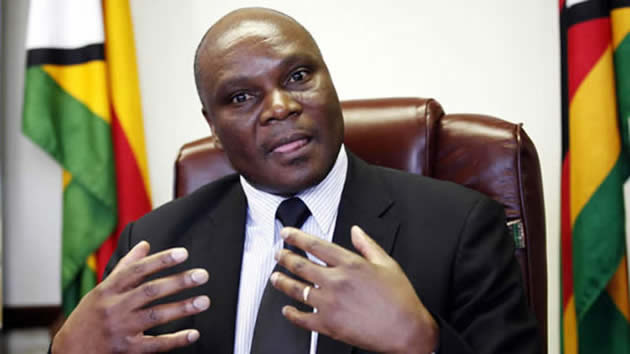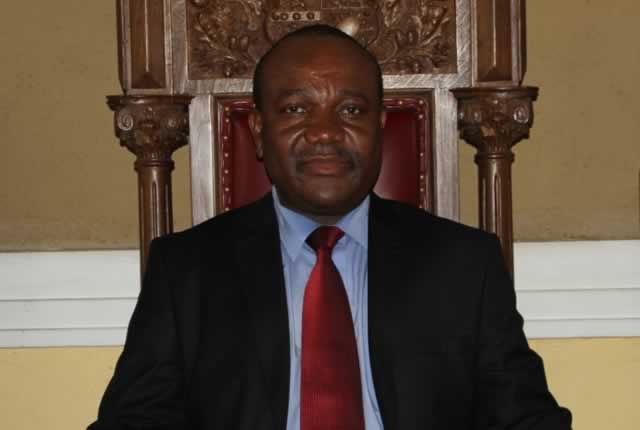Board appointments need interrogation

 Lloyd Gumbo Mr Speaker Sir
Lloyd Gumbo Mr Speaker Sir
The criteria used in appointing board members of parastatals need serious interrogation. Yes, qualifications and specifications have been put in place but sometimes they are too broad, thus allowing the appointing officers to assign their people to protect their own interests rather than those of the nation.
Members of Parliament have on several occasions probed and accused ministers of appointing their people as board members of state-owned enterprises that fall under their ambits.
This has become a common chorus yet apparently nothing is being done to address the anomaly.
The Comptroller and Auditor General, in her report for the period January to December 2010, makes some of us question the criteria used when appointing boards as she decried the lack of Corporate Governance, broadly defined as encompassing “the authority, accountability, stewardship, leadership, direction and control in corporations”.
She argued that in certain instances there were poorly constituted boards or no boards at all.
In the end, this created a vacuum while in some cases the boards “were unbalanced due to lack of financial expertise and operated without audit committees thereby compromising their oversight role.
“The Corporate Governance Framework for State Enterprises requires the board to have appropriate expertise and skills mix”.
It is this prerogative of the appointing minister and others to look into the expertise mix that has drawn our attention to this week’s edition of the Speaker’s Chair.
If the board does not have the requisite expertise, definitely the affected Government corporations cannot be expected to deliver on their mandate.
They will continue to be a drain on the fiscus and will, in the end, collapse.
There are critical issues to be looked at when board members of state entities are appointed.
For too long, mediocrity has been allowed to flourish at these State-owned enterprises with people being appointed as board members not on merit but for their status in society.
Mr Speaker Sir, why should our SOEs be the only suitable places for retired people from whatever sector?
Should we continue to have individuals appoint their friends at these parastatals?
Should people who have been exhausted by politics be appointed to oversee the running of state entities when they should be writing books about their life experiences?
Where will they get the energy to run parastatals that require innovative minds when they have already given up on their chosen fields?
Should we have grandparents compete with their grandchildren to be appointed to these boards?
Why are we demeaning our SOEs to be dumping grounds for semi-retired servants or politicians who have found the going tough in their chosen fields?
Are we not suffering from political constipation?
Parastatals have a big role to play in the country’s economic developmental agenda and we have to get it right on who is appointed to these parastatal boards.
It is high time people were appointed on these boards to deliver for the benefit of the country and not to just keep them busy.
Recently, Mines and Mining Development Minister Walter Chidhakwa, revealed that some individuals had applied to be board members of State entities under his ambit.
He questioned the rationale and reasons why they wanted to sit on these boards saying there was a possibility that they had ulterior motives.
Chidhakwa said it was the first time he had heard that aspiring board members applied for the posts.
But why should people be appointed when they have not applied for the post?
How can such people be held accountable for their omissions or commissions when the minister head-hunted them?
Buhera South MP, Joseph Chinotimba, was furious recently that most of the board members at zupco came from Mashonaland West, a province where the minister responsible, Dr Ignatius Chombo, hails from.
It has become common knowledge that when a minister is appointed he/she immediately dissolves the boards appointed by the previous minister so that he/she can appoint his/her own people.
This makes one wonder if these boards are there to serve any other purpose rather than the interests of the appointing minister.
If it was all about serving the nation, then existing boards should continue regardless of which minister is appointed.
As long as the appointing authority is a preserve of individuals, the current deplorable pattern will continue yet this should be a collective responsibility for the good of the country.
Can’t we take a leaf from what they are doing in other jurisdictions like India where they have a specialised Enterprise Selection Board — an independent body that makes the initial recruitment of board members before taking the same to a Cabinet appointment committee consisting of different ministers to consider the names?
Such a mechanism helps do away with nepotism and appointment of people who are incompetent to have control over these entities.
Mr Speaker Sir, we must have a panel of experts to form a nomination committee to consider names of people who may be experts in specific areas.
We must also have a pool of experts ready to be deployed as board members in their areas of expertise.
A pool of experts would allow the appointing authority to extract names from the same depending on their areas of expertise.
For instance, where we have experts in engineering, we should have such people being appointed to boards of Zesa and its subsidiaries.
Or why should we have a career educationist being appointed a board chairperson of say Air Zimbabwe while appointing a technician as chair of zimsec?
We should have the right people at the right places if our parastatals are to deliver.
A careful analysis would be that, in selecting boards, there is need to ensure that, the same are revitalised and refreshed with new blood that gives impetus to new ideas.
In choosing a board, there is need to generally put many factors into consideration, of which generally, the ability and experience of an individual in a particular area is key.
A valuable qualification should also be taken into consideration. It is relevance!
One of the basic qualities of a good board is to give members an opportunity to bring in fresh ideas and new perspectives otherwise we run the risk of convoluted day dreams of a Chitungwiza railway line project and many other far-fetched projects which never come to fruition.
According to Richard Frederick in “Enhancing the Role of the Boards of Directors of State-Owned Enterprises”, the ideal way to approach board member nominations is to appoint based on merit, and retain based on performance.
Frederick states: “What stands in the way of this ideal is the penchant for politicisation. Some of the classic effects of politicised nominations are: 1) the changing of the board with a change in political powers; 2) excessive turnover of board members; 3) or, alternatively, insufficient turnover, and lack of fresh blood and innovation on the board; 4) friend appointments and patronage; 5) changing members without good reason; and 6) the inability to get desired profiles. Another practical problem is delays in government decision making. When politicisation occurs, it does not yield the needed board member.”
Some boards appointed in recent months seem like closed circuits of ideas — where ideas go round and round in a circle and more often than not die through exhaustion or in others, emerge with most of their original freshness talked out of them.
It is time to create opportunities for fresh men and women, persons of substance who check the external environment in which parastatals are operating and are not hesitant to press for achieving high levels of standards.
- Feedback: [email protected]










Comments